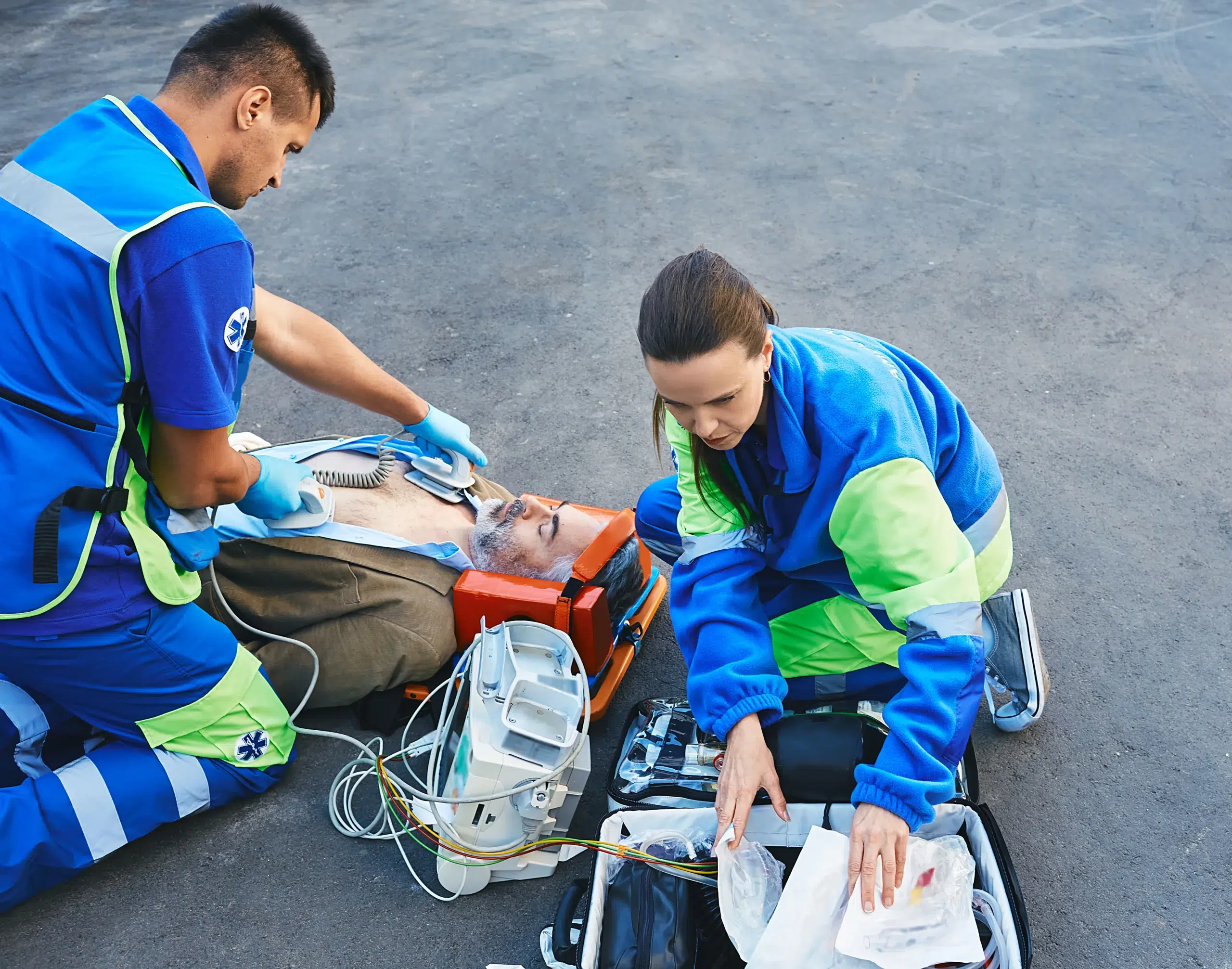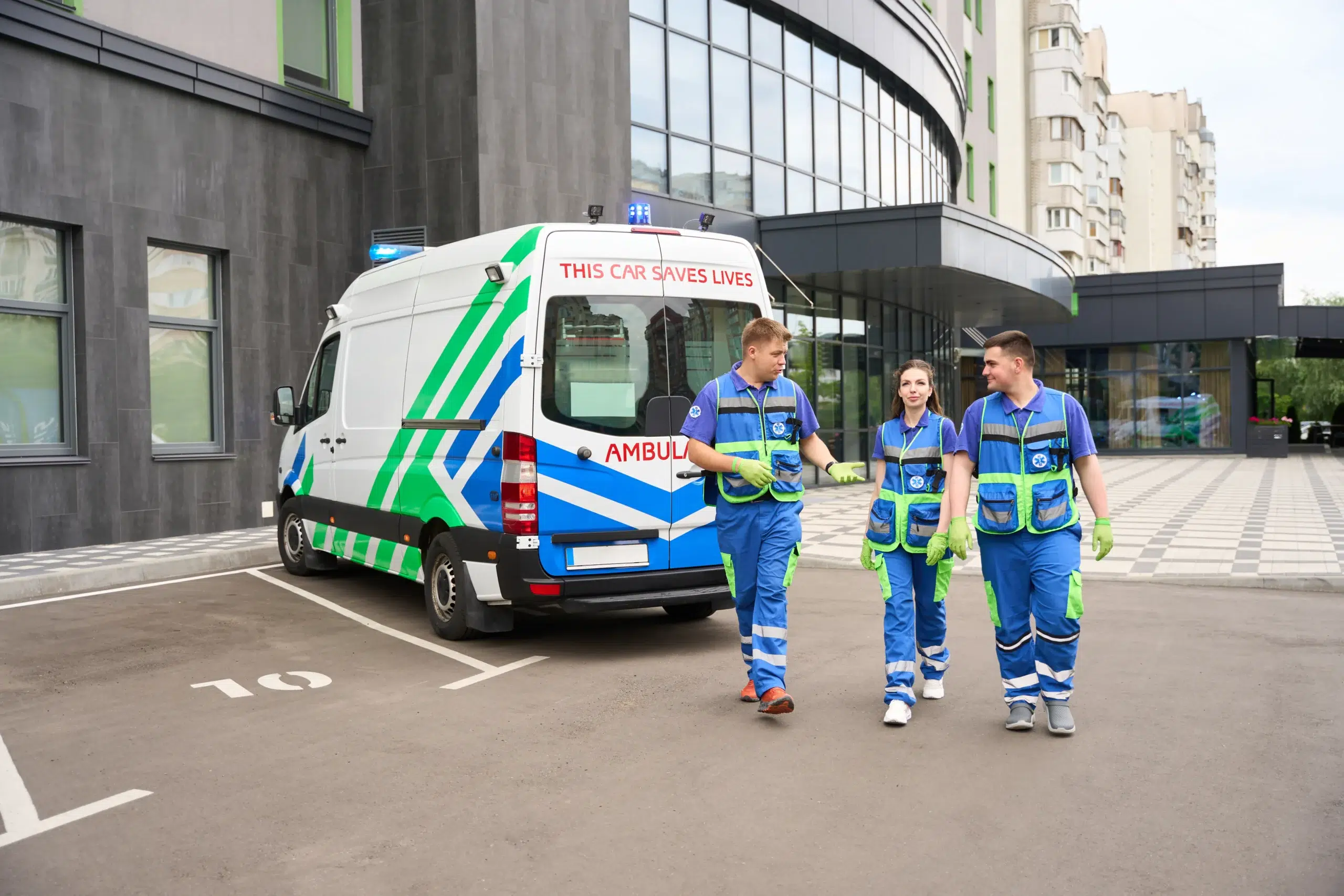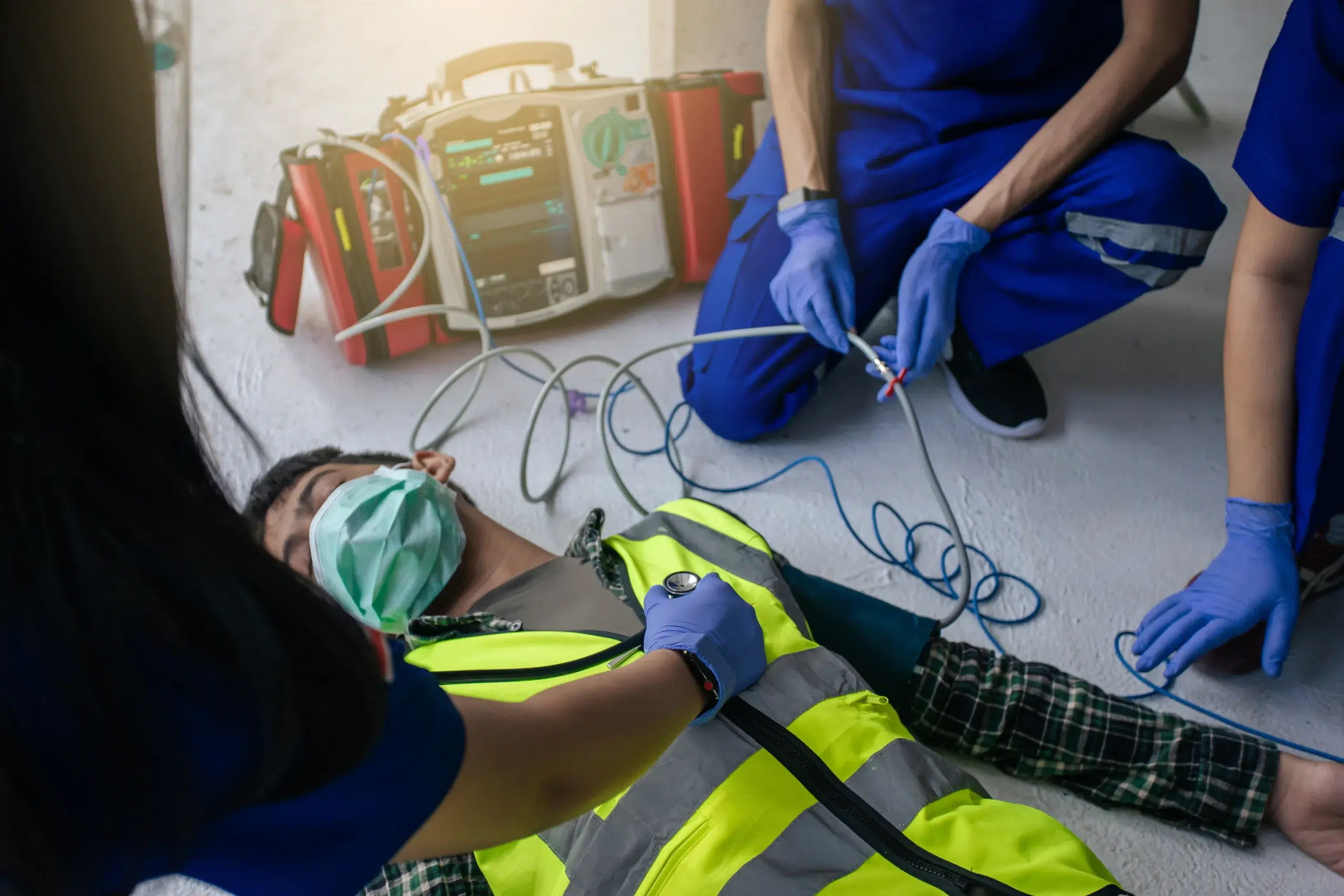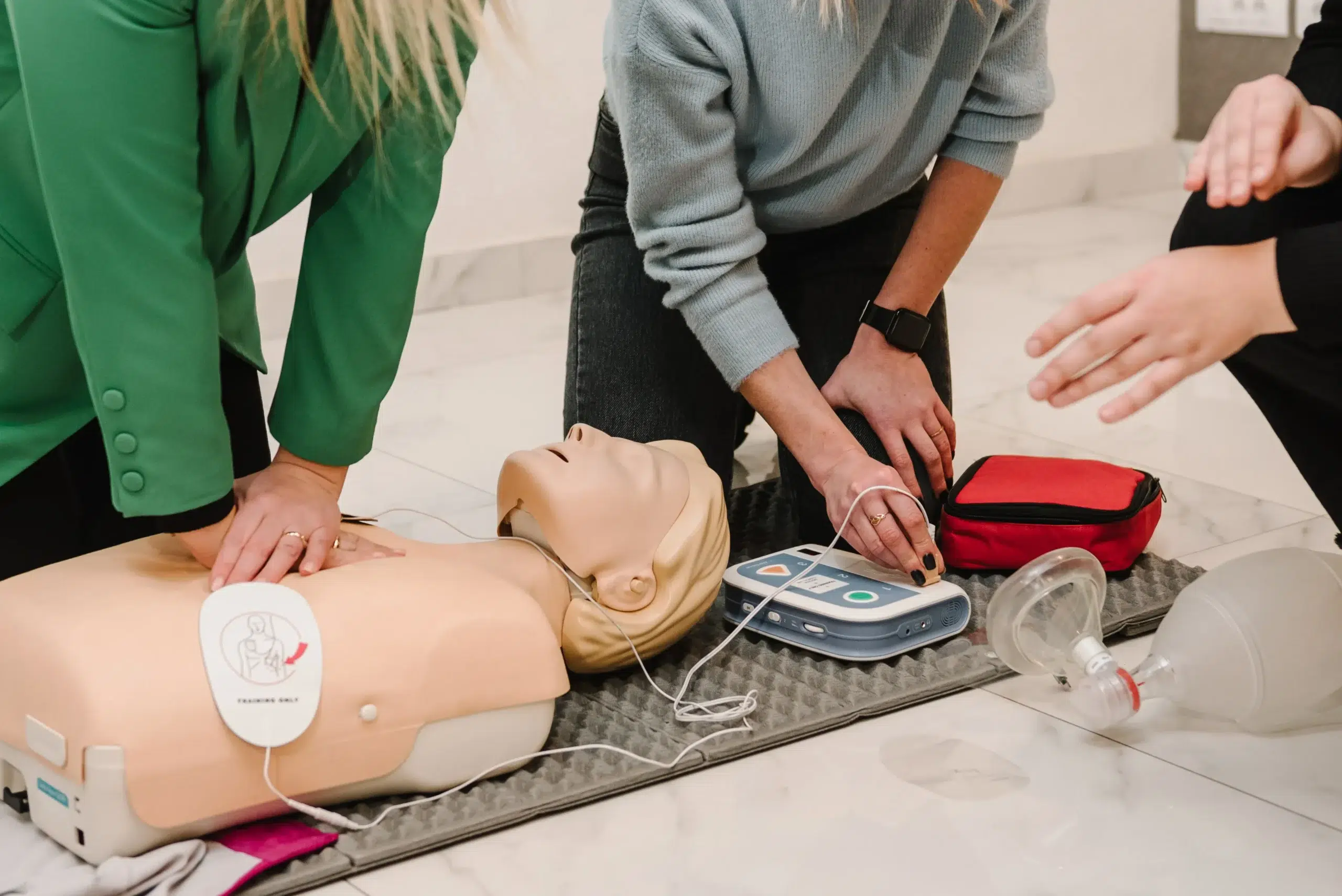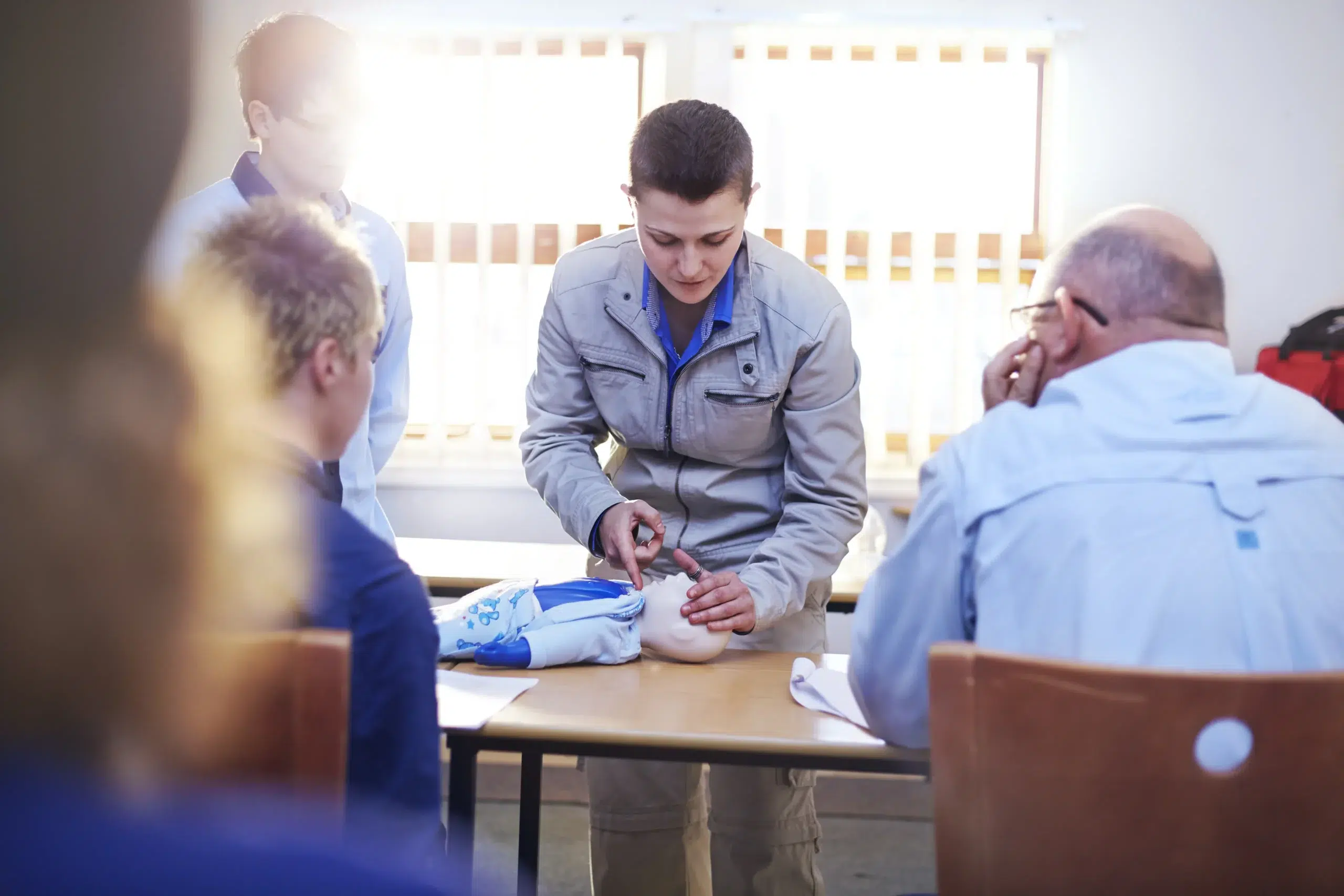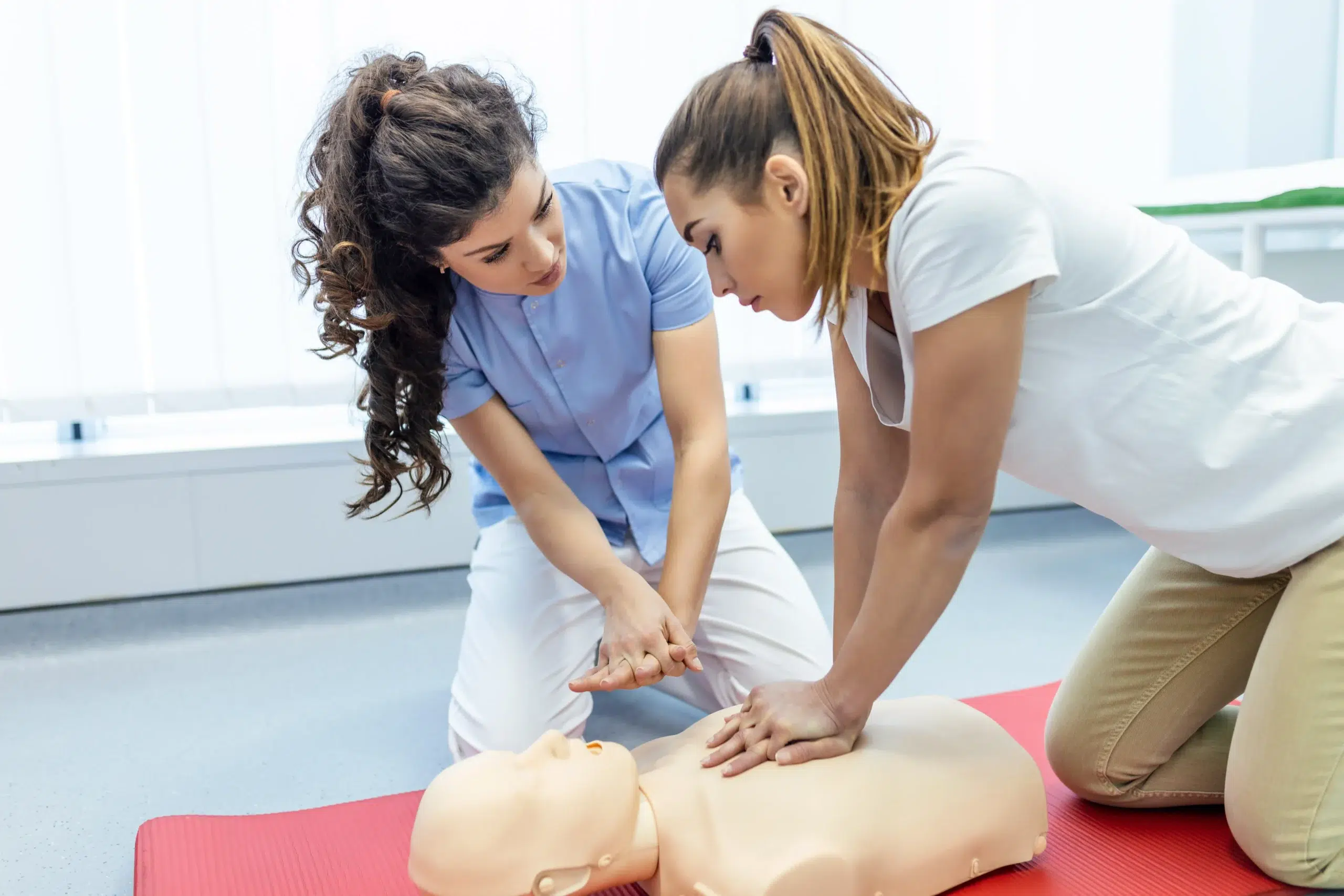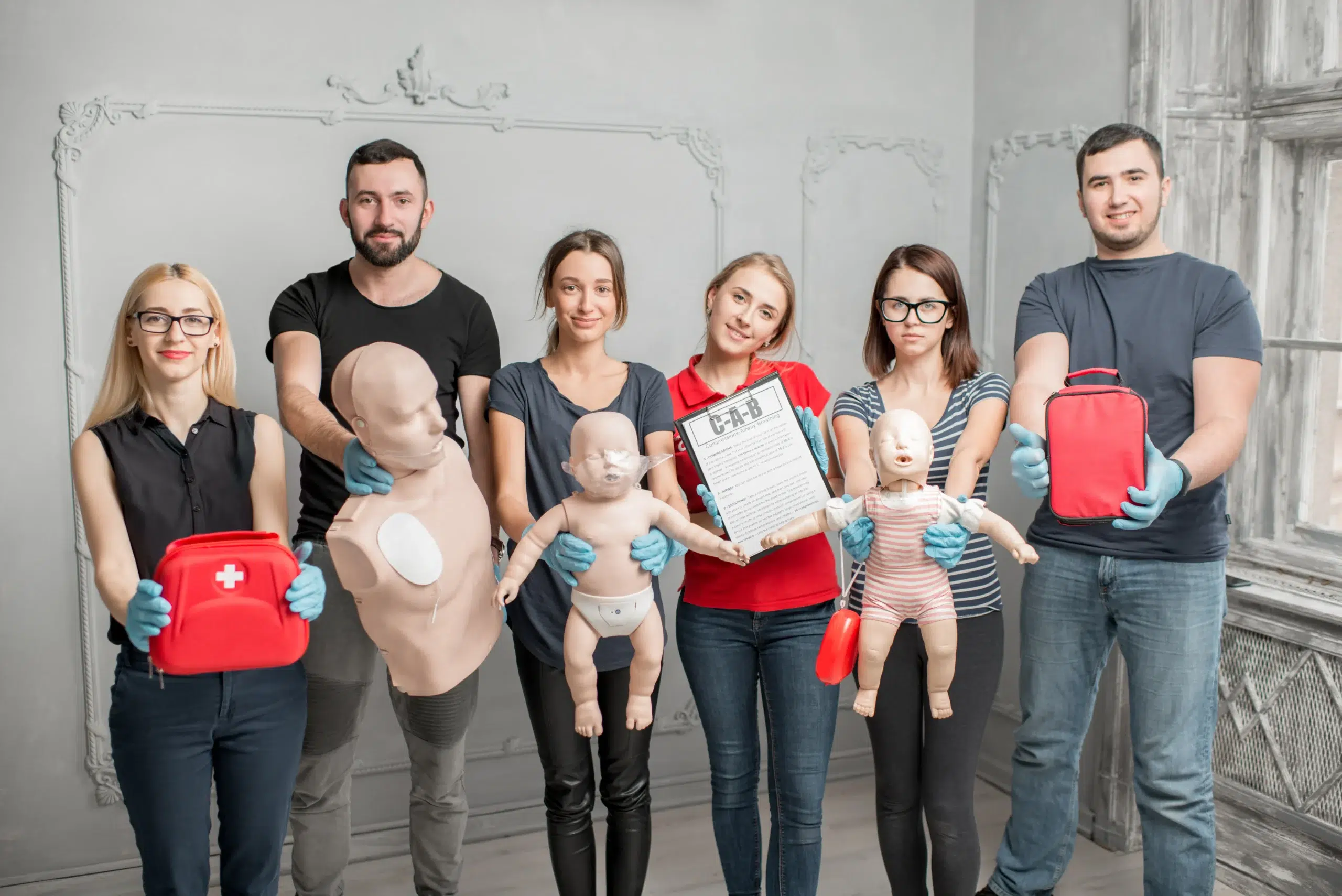Emergencies can happen anytime, anywhere. Would you know what to do if someone near you suddenly collapsed? Learning CPR can empower you to take action and potentially save a life. It’s a skill that goes beyond textbooks and becomes a powerful tool in times of crisis. This article explores the importance of CPR, the different types of CPR classes in Pleasant Hill, and how you can get certified to make a difference in your community. We’ll cover everything from basic CPR and First Aid to advanced life support, ensuring you find the right training to meet your needs.
Key Takeaways
- CPR skills empower you in emergencies: Learning CPR and First Aid equips you to handle various situations, from minor injuries to life-threatening events. These skills build confidence and prepare you to make a difference when it matters most.
- Pleasant Hill CPR Classes offers comprehensive, convenient training: They provide a range of AHA-certified courses, including BLS, ACLS, PALS, and First Aid, with flexible scheduling and a low price guarantee. Their specialized RQI programs offer an efficient certification process for healthcare professionals.
- Find the right CPR class for your needs: Consider factors like certification requirements, course format (in-person, online, or hybrid), and schedule when choosing a class. Explore different providers and compare costs to find the best fit for your learning style and goals.
What is CPR? Why is it Important?
CPR stands for cardiopulmonary resuscitation. It’s a lifesaving technique used when someone’s breathing or heartbeat has stopped, perhaps due to a heart attack, near drowning, or another emergency. CPR combines chest compressions and rescue breaths to circulate oxygenated blood to the brain and other vital organs until professional medical help arrives. Learning CPR empowers you to respond effectively during such emergencies. It equips you to handle situations ranging from minor injuries to life-threatening cardiac events, making you a valuable asset in any crisis. Pleasant Hill CPR classes offer comprehensive CPR training to prepare you for these situations.
What is CPR and why learn it?
CPR involves chest compressions and rescue breaths. These actions manually circulate oxygen-rich blood, keeping vital organs alive until emergency responders arrive. Learning CPR isn’t just about acquiring a skill; it’s about gaining the confidence to act quickly and decisively when every second counts. This knowledge can dramatically affect the outcome of an emergency. For reliable CPR certification in Pleasant Hill, consider Pleasant Hill CPR Classes. They offer a range of American Heart Association courses including BLS, ACLS, and PALS.
Who needs CPR certification?
While CPR certification is essential for healthcare professionals and educators, it’s valuable for anyone. Parents, childcare providers, coaches, and even those working in office settings can benefit from knowing CPR. Anyone who wants to be prepared for an emergency should consider getting certified. CPR and First Aid classes are available for individuals across various professions and backgrounds. Check out Pleasant Hill CPR Classes’ low price guarantee.
Common CPR Myths Debunked
Several myths surround CPR, and it’s important to address them. One common misconception is that CPR alone can restart a stopped heart. While CPR helps maintain blood flow, it primarily buys time until advanced medical care can be provided. Another myth is that CPR always results in broken ribs. While rib fractures can sometimes occur during CPR, they are a small price to pay compared to the potential of saving a life. Debunking these myths is crucial for understanding the true purpose and effectiveness of CPR. For accurate information and high-quality training, explore the CPR classes offered in Pleasant Hill. Their convenient location serves Walnut Creek, Concord, and Pleasant Hill, CA.
CPR Classes in Pleasant Hill
Pleasant Hill offers a variety of CPR classes to suit different needs and experience levels. Whether you’re a healthcare professional, a concerned parent, or simply someone who wants to be prepared for emergencies, you can find the right training program right here in Pleasant Hill. Here’s a rundown of the most common CPR classes available:
BLS for Healthcare Providers
BLS (Basic Life Support) classes in Pleasant Hill are crucial for healthcare providers, equipping them with the skills to respond to life-threatening emergencies. These BLS courses cover core life support techniques, including CPR, AED use, and relief of choking. Pleasant Hill CPR Classes offers various course formats—in-person, online, and hybrid—to accommodate busy schedules. This comprehensive training emphasizes high-quality CPR and team dynamics, preparing healthcare professionals to deliver effective care in critical situations. For medical professionals seeking an efficient certification process, Pleasant Hill CPR Classes also specializes in RQI (Resuscitation Quality Improvement) programs. You can learn more about our RQI classes on our website.
Heartsaver CPR/AED for Everyone
Heartsaver CPR/AED courses are designed for anyone, from teachers and coaches to parents and caregivers. These classes empower individuals to respond confidently to sudden cardiac arrest and other emergencies. Learning CPR and first aid equips you to handle a range of situations, making you a valuable asset in your community. Pleasant Hill CPR Classes provides these essential life-saving skills in a supportive and engaging learning environment. Our low price guarantee ensures that this valuable training is accessible to everyone.
Advanced Cardiovascular Life Support (ACLS)
ACLS (Advanced Cardiovascular Life Support) certification is essential for healthcare professionals who manage cardiopulmonary arrest or other cardiovascular emergencies. ACLS classes cover advanced life-saving techniques, including airway management, rhythm recognition, and effective team dynamics. Pleasant Hill offers these advanced courses to ensure healthcare providers have the expertise to handle complex medical emergencies. Contact us today to learn more about our ACLS training options. You can reach us through our convenient contact form.
Pediatric Advanced Life Support (PALS)
PALS (Pediatric Advanced Life Support) courses focus on the specialized needs of infants and children facing life-threatening emergencies. These PALS classes provide healthcare providers with the skills to assess, manage, and stabilize pediatric patients in critical situations. Pleasant Hill CPR Classes offers comprehensive PALS training to equip medical professionals with the knowledge and confidence to provide effective care for young patients. We understand the importance of specialized pediatric training, and our expert-led courses cover the latest guidelines and best practices.
First Aid + CPR
Combining first aid and CPR training provides a well-rounded approach to emergency preparedness. These comprehensive courses cover essential first aid skills for treating injuries and illnesses, along with life-saving CPR techniques. First aid and CPR training empowers individuals to respond effectively to a wide range of emergencies, from minor cuts and burns to serious cardiac events. Pleasant Hill CPR Classes offers combined courses to equip you with the skills to handle any situation. Our convenient class schedules and locations make it easy to fit this important training into your busy life.
What Happens in a CPR Class?
CPR classes equip you with the skills to respond confidently during cardiac emergencies. They blend theory and hands-on practice, ensuring you’re prepared to act quickly and effectively. Here’s a glimpse of what you can expect:
Course Content and Structure
CPR classes cover the fundamentals of cardiopulmonary resuscitation, starting with assessing the victim and scene safety. You’ll learn how to perform chest compressions, deliver rescue breaths, and recognize the signs of a heart attack or stroke. Many courses, like those offered by Pleasant Hill CPR Classes, also integrate Automated External Defibrillator (AED) training, teaching you how to use this life-saving device. The curriculum typically adheres to the latest American Heart Association guidelines, ensuring you receive up-to-date instruction.
Hands-on Practice
Theory is essential, but practice is key to mastering CPR. Classes provide ample opportunity for hands-on training using realistic CPR mannequins. This allows you to develop the muscle memory and coordination needed for effective chest compressions and rescue breaths. You’ll learn the correct hand placement, depth of compressions, and the appropriate rhythm for providing consistent, high-quality CPR. This practical experience builds confidence and prepares you to respond effectively in real-life emergencies.
Certification Process
After successfully completing the course and demonstrating proficiency in CPR skills, you’ll receive certification through a recognized organization like the American Heart Association. Pleasant Hill CPR Classes offers various certification programs, including the RQI program, a convenient and efficient option for healthcare professionals seeking BLS, ACLS, and PALS certification. Your certification card validates your training and signifies your readiness to provide CPR in critical situations.
Choose the Right CPR Class
Finding the right CPR class involves a few key considerations. It’s not just about learning the techniques; it’s about finding a course that truly fits your needs and learning style. This section will guide you through the essential factors to consider when making your decision.
Factors to Consider
When selecting a CPR class, think about what you want to achieve through the training. Are you looking for a basic understanding of CPR or a more comprehensive course? Pleasant Hill CPR Classes, for example, offers a range of courses, from basic CPR and First Aid to more advanced certifications like ACLS and PALS. Consider the level of detail and the specific skills you want to develop. The quality and comprehensiveness of the training are crucial for preparing you to handle real-life emergencies, empowering you to respond effectively to various situations, from minor injuries to life-threatening cardiac events.
Certification Requirements
Different professions and situations may require specific certifications. Before signing up for a class, make sure it aligns with any certification requirements you may have. Do you need a certification from the American Heart Association (AHA) or another recognized organization? Pleasant Hill CPR Classes offers AHA-certified BLS training designed for healthcare providers, ensuring you receive a relevant and recognized credential. Understanding the specific certification requirements beforehand will save you time and ensure you receive the appropriate training for your field.
Course Duration and Format
Life gets busy, so finding a course that fits your schedule is essential. Consider the course duration and format that works best for you. Pleasant Hill CPR Classes offers various learning formats—including in-person, online, and hybrid options—accommodating different schedules and learning preferences. This flexibility allows you to choose a BLS class that integrates seamlessly into your lifestyle. They also provide various CPR and advanced life support training options, including BLS renewal courses, to keep your skills sharp. Whether you prefer a condensed in-person course or a more flexible online option, choosing a format that suits your learning style will lead to a more positive and effective learning experience.
Top CPR Training in Pleasant Hill
Finding the right CPR training can feel overwhelming with so many options. To help you decide, we’ve compiled a list of reputable training providers in Pleasant Hill. Whether you’re a healthcare professional needing BLS certification or a parent wanting to learn CPR and First Aid, there’s a course for you.
Pleasant Hill CPR Classes
Pleasant Hill CPR Classes offers a comprehensive range of courses, including BLS, ACLS, PALS, and First Aid. They focus on providing high-quality, accredited programs designed to prepare you for real-life emergencies. Their convenient daily classes and low price guarantee make them an attractive option. They also specialize in RQI programs—a valuable asset for medical professionals seeking efficient recertification. Contact them to learn more.
American Heart Association
The American Heart Association sets the standard for CPR training. Several providers in Pleasant Hill, including Safety Training Seminars, offer AHA-certified courses. These courses cover essential life-saving techniques and adhere to the latest AHA guidelines. Look for providers offering BLS, ACLS, and PALS certification through the AHA.
Red Cross
Red Cross CPR and First Aid training is widely recognized and respected. Learning these skills through the Red Cross equips you to respond to various emergencies, from minor injuries to life-threatening situations. Their emphasis on practical skills and comprehensive approach makes them a reliable choice.
National Safety Council
The National Safety Council is another reputable organization offering CPR training. Local providers, such as Safety Training Seminars, often offer NSC-certified courses. These courses focus on workplace safety and provide valuable skills for employees in various industries. Check with local training centers for NSC-certified options.
American Safety & Health Institute (ASHI)
ASHI CPR training emphasizes building confidence and reducing anxiety when performing CPR. This focus on the psychological aspects of emergency response can be particularly helpful for those new to CPR. While information on specific ASHI courses in Pleasant Hill may be limited, understanding their approach can help you choose a provider that prioritizes both technical skills and emotional preparedness. You can learn more about their training philosophy through resources like this article on common CPR misconceptions.
CPR Class Costs & Scheduling
CPR certification is an investment in your skills and ability to help others during emergencies. Understanding the costs and finding a schedule that works for you is essential. Let’s break down what you can expect.
Average Course Pricing
CPR course costs vary depending on the certification level and the provider. Basic CPR and First Aid courses typically range from $40 to $60. More advanced courses like ACLS or PALS are generally more expensive. Pleasant Hill CPR Classes offers a low price guarantee, so you can feel confident you’re getting a competitive rate. Recertification courses are often cheaper than initial certification.
Discounts and Offers
Many CPR training providers offer discounts for group registrations, students, or returning customers. Look for special promotions or discounts on training materials like manuals and DVDs. Some organizations offer discounts on supplies when purchased with a class. Check with Pleasant Hill CPR Classes to see what discounts are available.
Flexible Scheduling
CPR training offers flexible scheduling options. Providers understand busy schedules, so they offer classes on evenings, weekends, and weekdays. Pleasant Hill CPR Classes offers daily certification courses to accommodate various schedules. This flexibility makes it easier to fit this important training into your life.
Benefits of CPR Certification
Learning CPR is about more than just a certificate; it’s about empowering yourself with life-saving skills. Knowing CPR helps you respond effectively in emergencies, from minor injuries to serious cardiac events. Whether you need it for your job, personal enrichment, or peace of mind, CPR certification is a valuable asset. It provides the confidence and skills to make a difference when it matters most.
Related Articles
- Why CPR is Vital for Healthcare and Public Safety
- The Importance of CPR in Saving Lives – Pleasant Hill CPR Classes
- Debunking Common CPR Myths for Lifesaving Confidence
- CPR Courses in Pleasant Hill: Find the Right Class – Pleasant Hill CPR Classes
- CPR Certification in Pleasant Hill: A Complete Guide
Frequently Asked Questions
What if I’m nervous about performing CPR in a real emergency? It’s completely normal to feel apprehensive about using CPR in a real-life situation. CPR classes address this by providing ample hands-on practice and guidance. This helps build muscle memory and confidence, allowing you to react effectively under pressure. Remember, any attempt at CPR is better than none.
How long is CPR certification valid, and how do I renew it? CPR certifications are typically valid for two years. Renewal involves taking a recertification course, which is often shorter than the initial certification course. Check with your certifying organization or training provider like Pleasant Hill CPR Classes for specific renewal requirements and available courses.
What’s the difference between BLS and Heartsaver CPR? BLS (Basic Life Support) is geared towards healthcare providers and professionals in related fields. It covers a broader range of skills, including two-person CPR and the use of bag-valve masks. Heartsaver CPR is designed for the general public and focuses on single-rescuer CPR and AED use.
Can I learn CPR online, or do I need an in-person class? Both online and in-person CPR classes are available. Online courses offer flexibility, while in-person classes provide hands-on practice with instructors. Blended learning options combine online learning with in-person skills sessions. Choose the format that best suits your learning style and schedule. Pleasant Hill CPR Classes offers various formats to meet different needs.
Besides CPR, what other life-saving skills should I consider learning? Along with CPR, consider learning first aid and how to use an AED (Automated External Defibrillator). First aid skills equip you to handle injuries like cuts, burns, and fractures. AED training teaches you how to use this device, which can restore a normal heart rhythm during sudden cardiac arrest. Many CPR classes incorporate AED training into the curriculum.
